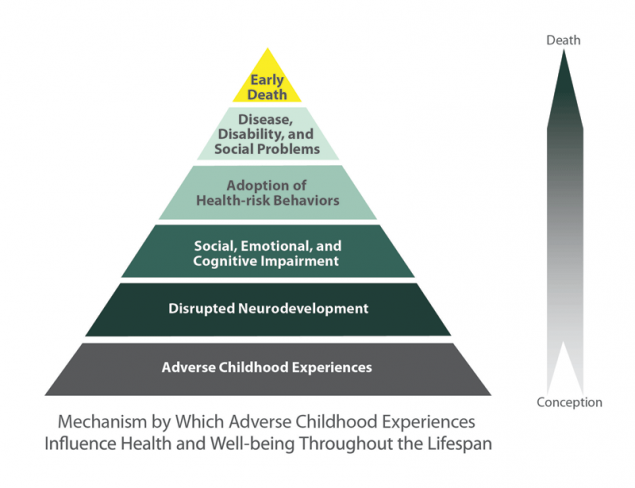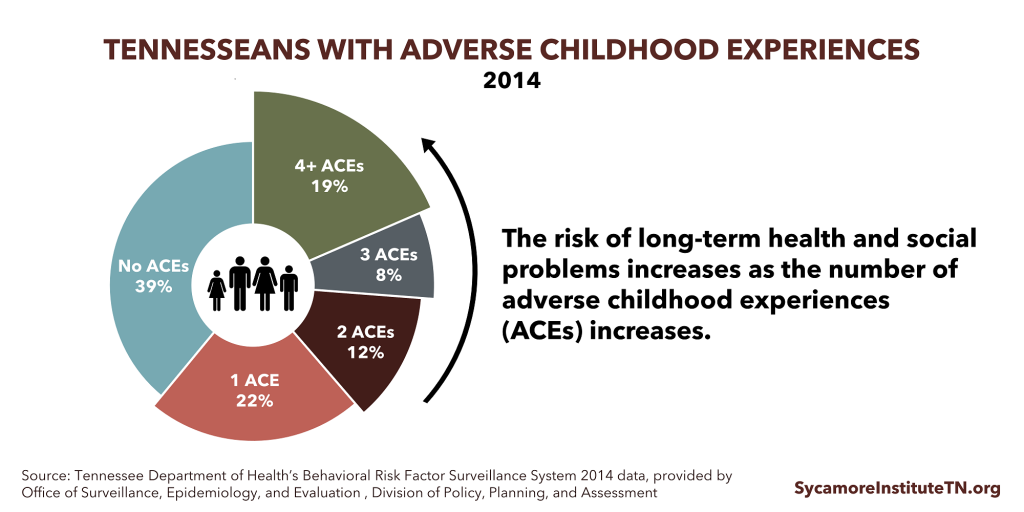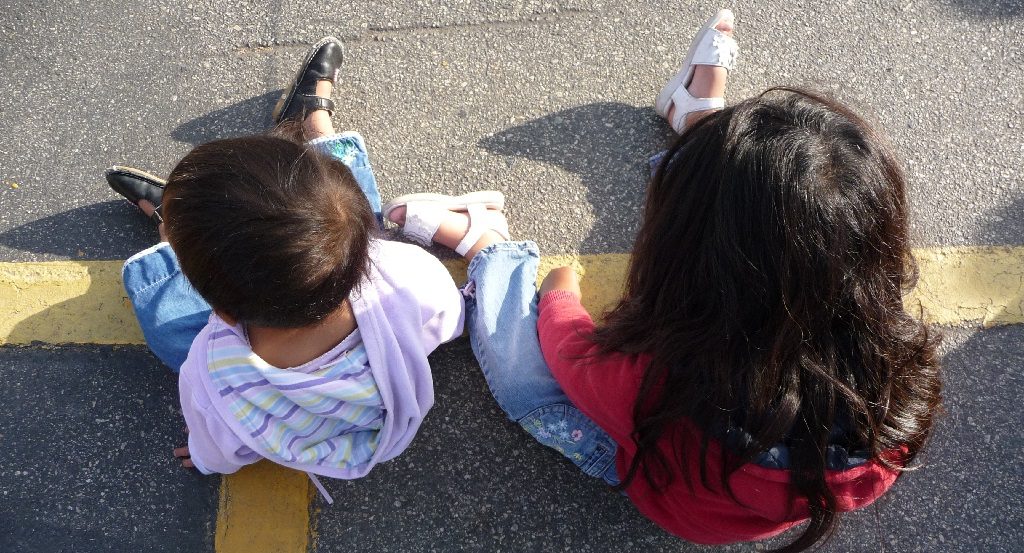The science of adverse childhood experiences (ACEs) is one of the best examples of the complex set of factors that influence health. (Remember, health is driven by more than just health care.) Decades of ACEs science show that childhood experiences and environments impact lifelong health and productivity. Policies and services that support children and their families have the potential to improve long-term health and prosperity for all Tennesseans.
The Science of Adverse Childhood Experiences
Early childhood and adolescence are critical times for human brain development. Although short periods of low-level stress are a normal and healthy part of growing up, chronic and severe stress during childhood can be toxic to the developing brain. Science has shown that toxic stress caused by ACEs can increase the risk of lifelong problems.
The U.S. Centers for Disease Control and Prevention (CDC) and Kaiser Permanente published the results of the first ACE study in 1998. This research generated some of the first scientific data on the relationship between early childhood experiences and lifelong health and well-being.
Researchers assigned the 17,000 study participants an ACE score based on 10 specific childhood exposures — including psychological, physical, and sexual abuse and household dysfunction (e.g. substance abuse, mental illness, incarcerated relatives, domestic violence). 64% of the participants reported at least one ACE, and 22% reported 3 or more ACEs.
Science has found a clear link between adverse childhood experiences and health and well-being later in life. The higher the ACE score, the greater the incidence of subsequent physical and mental health conditions and risky health behaviors. In other words, as exposure to ACE-related toxic stress increases, so does the risk of a wide variety of outcomes with long-term negative effects, such as:
- Alcohol abuse
- Drug abuse
- Chronic obstructive pulmonary disease (COPD)
- Smoking
- Heart disease
More recent research has also found relationships between ACEs and lower educational attainment, lower productivity, and premature death.

Source: Centers for Disease Control and Prevention
The Economic Cost of ACEs
The effects of childhood toxic stress reach beyond the individuals who directly experience it. Adverse childhood experiences also have an economic cost. Research has shown that the physical and mental health conditions caused by childhood toxic stress reduce productivity later in life. According to the CDC, ACEs also result in increased taxpayer costs for health care, child welfare, education, and criminal justice.
Putting ACEs Science into Practice
Adverse childhood experiences are a risk factor for negative health and well-being outcomes, but they are not fate. Other factors that increase children’s resilience to toxic stress can reduce or overcome the effects of ACEs. Successful approaches to addressing ACEs recognize that a wide variety of influencers (e.g. the health care system, education, child welfare, and criminal justice) can play a role in supporting children, parents, and families. Identifying and addressing sources of toxic stress in childhood can have multigenerational benefits for health and productivity — making a lasting impact on the prosperity of our communities and Tennessee as a whole.

Building Strong Brains: Tennessee’s ACEs Initiative
Tennessee’s state government launched the Building Strong Brains initiative in 2015 as a joint effort with multiple stakeholders to address adverse childhood experiences and other sources of childhood toxic stress in our state. The Building Strong Brains initiative seeks to put the knowledge gained from ACEs science to work in Tennessee by spreading awareness and encouraging innovation.
Tennessee’s FY 2016-2017 state budget included $1.25 million for the initiative, which funded 13 ACEs Innovation projects throughout the state. The projects range from educating health care providers to integrating ACEs research and trauma-informed practices into school systems. The recently approved FY 2017-2018 state budget continues to fund the initiative at the same dollar amount.
Resources on Adverse Childhood Experiences
- Tennessee ACEs Fact Sheet
- Building Strong Brains: Tennessee’s ACEs Initiative (TN Department of Children’s Services)
- Adverse Childhood Experiences: Trauma and Toxic Stress (TN Commission on Children and Youth)
- The Memphis ACE Awareness Foundation
- The Original CDC-Kaiser Permanente ACE Study (CDC)
- National ACEs Data (CDC)
- “The Truth About ACEs” Infographic (RWJF)
Featured Image at top by Jeff Turner / CC BY 2.0

